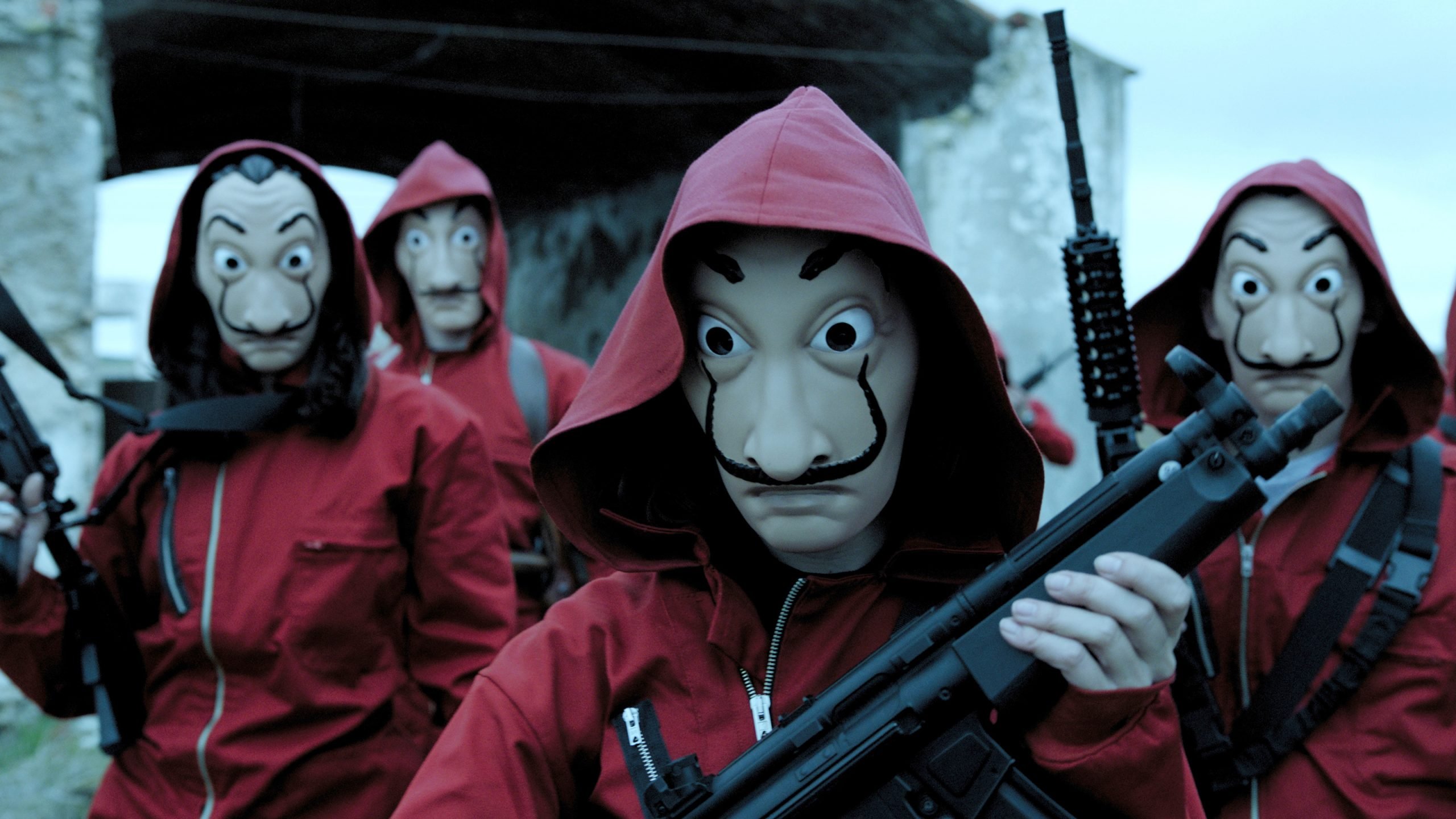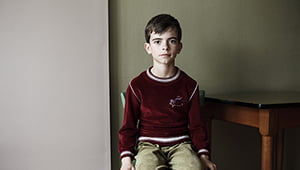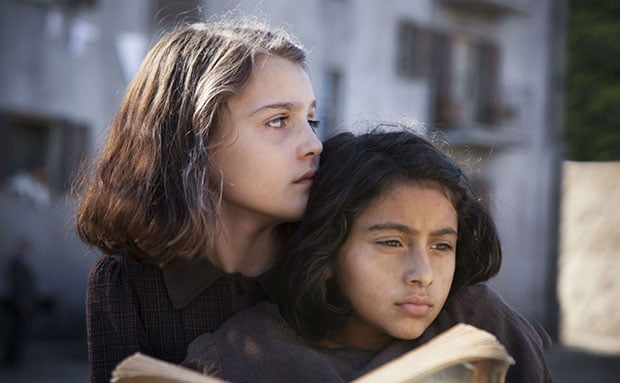Theme Festival - Non-English Language Drama

Non-English-language drama is going from strength to strength, but what does this mean for other areas of the industry, including the M&A market and remakes? Executives including Fremantle’s Christian Vesper and Walter Iuzzolino of Walter Presents consider the genre’s impact.
If any show can lay claim to ‘breaking the internet’ over the past year, it’s Korean drama Squid Game. Within 28 days of the Netflix original’s release, it became the most-watched debut on the global platform, clocking in 1.65 billion hours of streams.
Those stats translated into US$900m in value for Netflix, according to a leaked internal document from the streamer, prompting every other exec worldwide to hunt for the next Squid Game.
Squid Game is not the first nor will it be the last non-English-language drama to make international waves. French crime drama Lupin and Spanish thriller Money Heist are among other non-English dramas to rack up the views to the point where the genre is arguably no longer a trend but the status quo.

That idea is backed up by Netflix, whose global head of TV, Bela Bajaria, revealed that 97% of American Netflix subscribers watched a non-English-language title in 2021, during the Television Critics Association’s summer press tour last year. That’s a meteoric rise of 71% in just two years, according to the SVoD platform’s own figures.
Popularity, however, does not mean that production of non-English drama is immune problems, according to Nicola Söderlund, managing partner at Swedish distributor Eccho Rights. The exec says that ambition in the space has soared to such a degree it’s now virtually impossible for producers to secure commissions for low-budget shows and series that are anything other than very high quality.
The solution is new financing models, Söderlund explains, pointing to international coproductions as the only viable option for many producers to be able to produce premium non-English-language drama. “Currently, we have maybe 20 coproduction projects in countries including Italy, Spain and Sweden,” he says. “We’re seeing that more unusual partnerships are forming as a result. On our slate, for example, we have a coproduction between Germany and Serbia.”

Could the need for premium non-English dramas even be fuelling the red-hot mergers and acquisitions (M&A) market? It certainly could be an attractive proposition for smaller producers and behemoths alike, with the former needing financial clout and the latter seeking to expand its international presence to stave off competition.
Christian Vesper, president of global drama at Fremantle, says that remaining active in the M&A market is essential to growth. “For groups like Fremantle, working with companies that produce a high level of drama is our bread and butter and we need those projects in any language to drive our business forward,” he explains. “At the same time, there’s such competition now, with big overall deals being done with independent producers and talent, that in order to even remain part of the conversation, we have to be aggressive as well.”
Meanwhile, Jimmy George, VP of sales and acquisitions at GoQuest Media, the Mumbai-based company that boasts a well-stocked slate of Eastern European dramas such as Serbian spy thriller Civil Servant, says the partnership between a large distributor and a local producer boosts a projects’ chance of travelling across the world.

“M&As give production giants a jump start in local markets and helps the development of global projects. That’s because they bring their international expertise and experience and marry that with strong local stories,” he says. “The result is project with extensive international appeal.”
It’s logical, then, that the need to serve both local and global markets could be filtering down to the development process, with storylines being rehashed to appeal to both audiences. But Walter Iuzzolino, co-founder and curator at non-English-language streamer Walter Presents, warns against this approach.
“More often than not, whenever you’re trying to tell a story to please the greatest possible number of people, you just water down your concept,” he says. “Audiences want hyperlocal content because they want to travel virtually and authentically. If you go to a Japanese restaurant, you want genuine sushi, you don’t want sushi with fish and chips crumbled on top.”

As an example, Iuzzolino says that content based on the Sicilian mafia, such as The Hunter on Walter Presents, performs well among UK audiences, despite the mafia having no history in the UK.
With global players like HBO Max funnelling cash into commissioning local originals, it could mean that English-language drama has taken a back seat. But according to execs, the opposite is true. A counter-trend has seen the likes of non-English producers and distributors, among them France’s Federation Entertainment and APC Studios, launch UK divisions to produce content in English.
Meanwhile, Fremantle has backed a coalition of nine independent production companies called The Creatives, a mix of non-English-language and English-language producers spanning eight countries, including the US’s Masha, Israel’s Spiro and Norway’s Maipo Film.
The alliance was spearheaded by France’s Haut et Court, the prodco behind drama Les Revenants (The Returned). Carole Scotta, Haut et Court’s co-founder, says that language was not even a factor when it came to forming The Creatives. “The barrier of language just isn’t an issue anymore,” she says. “Instead, the companies in The Creatives decided to join forces based on sharing similar DNA.”

Walter Presents’ Iuzzolino says that UK and American drama “are in rude health and have never been better; it’s one monster hit after the other.” He argues that the rise in the popularity and quality of non-English-language drama is having a positive knock-on effect on English content. “It’s a great cultural and learning opportunity for all of us in the UK, and indeed in America, because we are being exposed to different stories and different approaches to cinematography,” Iuzzolino explains.
It is perhaps this increased exposure to new methods that led to the exec co-founding scripted venture Eagle Eye Drama with backing from Channel 4. Eagle Eye focuses on producing English-language drama series inspired by hit foreign-language titles that have come through the Walter Presents platform. Its successes include crime drama Professor T based on the Belgian series of the same name, commissioned by UK broadcaster ITV.
Rather than slowing down the demand for English-language remakes of non-English drama, the latter’s popularity has resulted in a boom of the former, according to Fremantle’s Vesper.
“In the last year, we’ve seen an uptick in enquiries regarding formats,” he says. This includes a UK adaptation of Forhøret, a Danish crime thriller produced by Fremantle’s Miso Film. The remake, which stars James Nesbitt (Bloodlands), Joely Richardson (Nip/Tuck), Anne-Marie Duff (Sex Education) and Richard E Grant (Star Wars: The Rise of Skywalker), has been commissioned by Channel 4.

But Eccho’s Söderlund warns that a market flooded by remakes and originals could lead to a rights management nightmare. “The problem with remakes is that, with all these global platforms, there will be conflicts surrounding holdbacks and rights. It’s harder for us to sell remakes now, compared to when platforms were more local,” he says. “Now, everybody wants to sell to the rest of the world, and if you have a remake of the same IP in another territory, the deals could clash. That means companies will have to accept less attractive non-exclusive deals and accept holdbacks.”
As for the genre trends in non-English-language content, all the execs agree that crime dramas are here to stay. “Having run Walter Presents for the past seven years – and God knows we’ve tried – if you veer away from crime, psychological thriller or family drama, which are genres that work everywhere in the world, then it’s sometimes difficult for other genres to translate,” Iuzzolino says.
“The moment you go to romantic comedy it gets tricky, because what the Italians find romantic, the Belgians may not, for example. The architecture and structure of a crime thriller just translates, whereas other genres are subject to the vagaries of local tastes.”
Similarly, Fremantle’s Vesper suggests that “soapy” family and friendship dramas will be the next major non-English-language drama genre to grip global audiences. He points to the success of Italian-language drama My Brilliant Friend, which has been renewed for a third season by HBO and Rai, to illustrate his argument.

Produced by Fremantle-owned prodcos The Apartment and Wildside, along with Rome-based Fandango Production in collaboration with Rai Fiction and HBO Entertainment, My Brilliant Friend follows a 60-year friendship between two people who meet in primary school in 1950s Naples.
“My Brilliant Friend is historical and it has real depth, but it is ultimately a drama about friends, and it has some soapy qualities to it. Shows that are produced in that vein, we’re going to really see resonate,” Vesper adds. Those looking to commission such dramas should look to producers in Italy, Latin America and Scandinavia, according to the exec.
While dark dramas and Scandi noir have proved to be ratings hits, Vesper also predicts a resurgence of Scandi drama beyond noir. “Scandi producers create great comedies too. I know comedy doesn’t travel, but there are some truly oddball things coming out of the Scandinavian countries that are really funny and I feel like could resonate in the current marketplace,” he says.
Those wanting to replicate the success of Squid Game take note.